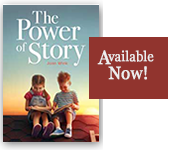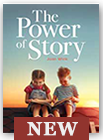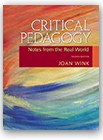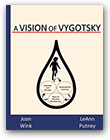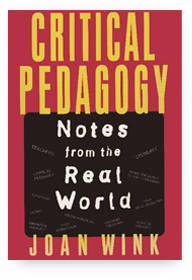Professor Beto certainly was a traditional professor in a classic sense. He was this and more. He brought his love of literature and music into the graduate classes and thus transformed them into passionate pedagogy. He did not unpack his backpack; nor did the students in his classes. Being a student in his classes transformed Joan’s life and learning; the story follows.
I had just finished a masters’ degree in Spanish from a major US university. It was an extremely demanding and rewarding process for me. I took half of my classes, my comprehensive tests, and my oral exams at the satellite campus in Mexico. I did this on purpose, as learning in Spanish was far more rigorous for me than learning in English. At the end of the program, I was exhausted and proud. Then the director of the program called me in to explain that the Mexican campus provided only a terminal degree. A terminal degree is just that: the end. The message was all too clear: the MA was to be my educational finish line; I was not to make a run for a doctoral program. I now understand that I was caught in an academic battle grounded in turf fights and perceived academic walls, but at the time I felt completely deflated and even incompetent, even though at that point in my life I had teaching credentials from a couple of states; several years of teaching behind me; and more years parenting my own teenage children. In spite of this, I felt less.
The purpose of this story is to demonstrate how the spiral of passionate pedagogy still can transform a life, even when there are roadblocks and challenges. During this MA program in Spanish, I had been watching one particular instructor, Professor Beto. I didn’t know who he was, or what he taught, or even which department he was in, but I noticed that the adult graduate students, who entered his classes, left with passion. It’s true, I used to sit on benches outside on of his classes and pretend that I was studying or drinking coffee, but the truth is that I was watching Professor Beto and the students. I wanted to be in those classes. But, you have to remember that I had that terminal degree, now on my record.
After a couple of years of this, I simply threw caution to the wind and enrolled in a class. I feared that the computer in the registrar’s office might whistle and hiss that I was terminal, but it didn’t. I entered the class and sat in the far corner of the room, as close to the door as possible. I was the only Anglo in a large room filled with Latinos. I can assure you that they were passionately learning the art of storytelling and the role of music in pedagogy. At the end of the class, as I was quickly and quietly heading for the door, Professor Beto stopped me and introduced me to two other women students, who had been sitting in the front of the class. After class, Gloria and Belén asked me to go for coffee with them. The next week in class, I was in front of the class seated safely between my two new colleagues and friends, Gloria and Belén. Thus, began my second MA, and eventually my Ph. D., my other terminal degree.
In retrospect, Professor Beto completely transformed my own teaching because he brought his passion for language, learning, and literacy to class. He connected me with his love of learning and teaching, which has since been a spiral weaving through my personal and professional life. The fact that we did it all in two languages did not hurt me; actually, it helped. Did Professor Beto ever know he had done this for me? Probably not. In education, we, teachers, often do not see the consequences or the legacy of our teaching. We never know the magical moment when we might be creating a memory. We may never know how we made a difference; with whom; nor when. In addition, we often cannot pay back what was given to us; we can only pass it on. The potential to change lives for the better (or for the worse) is always there. It is an awesome responsibility, which we, as teachers, must never forget. We do know that we have power to control the human interactions each day in our classes, and positive human interactions can leave a lasting legacy.
We can never do great things, only small things with great love.
Mother Teresa
